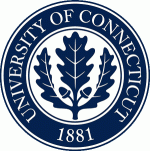 Professor Kai Zhao has had his article titled “War Finance and the Baby Boom” for publication in Review of Economic Dynamics.
Professor Kai Zhao has had his article titled “War Finance and the Baby Boom” for publication in Review of Economic Dynamics.
The abstract of the article is below.
In this paper, I extend the Barro-Becker model of endogenous fertility to incorporate specific fiscal policies and use it to study the effects of the fiscal policy changes following WWII on fertility in the United States. The US government went through large changes in fiscal policy after the beginning of WWII. The marginal income tax rate for an average American jumped from 4% on average before 1940 to approximately 25% during the war and stayed around 20% afterwards. The government debt-GDP ratio jumped from approximately 30% on average before WWII to 108% in 1946 and then dropped gradually in the following two decades to about 30% again at the end of 1960s. I find that the dramatic increase in the marginal income tax rate was an important cause of the postwar baby boom in the US because it lowered the after-tax wage and thus the opportunity cost of child-rearing. I also find that the differential change in taxes by income was an important reason why the baby boom was more pronounced among richer households (as documented by Jones and Tertilt (2008)). Furthermore, I argue that the government’s debt policy may also matter for understanding fertility choices because government debt implies a tax burden on children in the future and thus affects their utility, which is a key determinant of current fertility choice in the Barro-Becker model. The results of a computational experiment show that the US government’s postwar debt policy also contributed to the baby boom, but its quantitative importance is relatively small.
The article in its entirety may be read on the Economics Department’s Working Paper Series.
![t_prakash[1]](https://uconnecon.files.wordpress.com/2012/07/t_prakash1.jpg)

